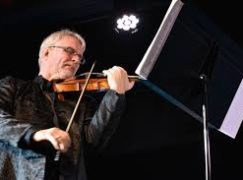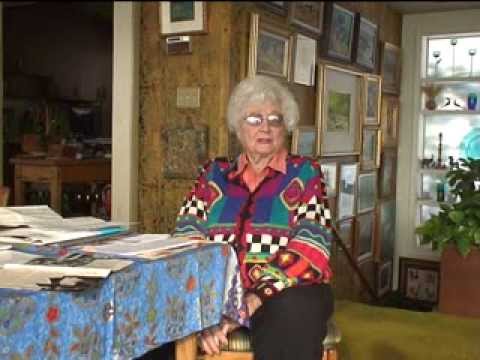The only recordings I would call indispensable
mainFrom the Lebrecht Album of the Week:
Most records are disposable. A few are memorable, a small handful are treasurable and every now and then now one comes along that is indelible. This box is something else. I think this is the first time I have ever described a record set as indispensable….
Read on here.

And here.





All very well if you enjoy Shostakovitch’s music ; otherwise , eminently dispensable
You must have a very sad life.
I am listening to Vivaldi at the moment, the joy of being alive! RV286 since you ask…
I have about 1300 CDs and quite a lot of downloads and not one of them is Shostakovich. And I don’t have a problem with that.
I have equivalent to about 5,500 C.D.s, and hardly any are Shos…..and I feel quite able to live a musical life.
Somewhat unusual to have nothing by Shostakovich when you have 1300 CDs. It must have taken quite a lot of effort to avoid any at all (even as filler).
Estimable? Surely. Indispensable? Hardly.
Thanks, Norman, for the heads up on this!! I hope you had good holidays.
Have you ever been on Radio 4’s Desert Island Discs? If not, would love to hear your surely hard but interesting (and maybe challenging) choices. Would this set be among them?
It would have to be.
Can you wangle an invitation so we can learn what else would be on your list?
I have a list of people that I would love to be on DID – and Norman is definitely on the list.
I would rather Norman appear on Private Passions… a format more suited to him and a classier more knowledgeable presenter!
Nice that Richard Nixon got in the photo
Thanks for the heads up on this one, looks great. One thing though – the review says it contains the complete op 87 P&Fs. Looking at the track listing for the set, it doesn’t appear that that’s true – there are only 13 of them spread across two discs, not the full 24…
Yes, it’s indeed not the complete 24 Preludes and Fugues, and I‘m puzzled as to why the Rostropovich version of the Cello Sonata (c. 1957 or 59), wasn’t included. It is fascinating to compare that to the Shafran version, which represents the 1st version of the work (the revised one which he and Rostropovich play reflects a completely different approach to the last mvt, where the earlier slow start and accelerando are dropped in favor of a steady tempo). Also, the complete Shostakovich collector will want to track down his EMI concerti (w/ Andre Cluytens) and a few of the Preludes and Fugues and 3 Fantastic Dances. There are also several Czech recordings.
These recordings by Shostakovich have been indispensable to me ever since they first appeared on labels such as Russian Disc, Revelation, &tc. They include two versions of his cello sonata with Rostropovich and Shafran,, the violin sonata mentioned, the second piano trio, blistering performances of the two picno concertos, the concertino with his son Maxim mentioned, three versions of the piano quintet, selection of short piano pieces, and the 24 preludes and fugues although I recall only 18 of them on Revelation.
I mention these without knowing the entire contents of the new Melodiya set. It’s fascinating to hear such composers as Nikolai Medtner, Tcherepnine, Gretchaninoff, Rodion Shchedrin, Rachmaninoff, Prokofiev, and Shostakovich play their music.
Norman, I love the fact that you reviewed this set. I absolutely agree with you…
The recording with Weinberg playing the 10th Symphony was previously released on Russian Revelation, and is indeed, a revelation. I’ve been waiting for it to reappear along with the preludes and fugues.Thanks for the heads up Norman.
I developed fairly early a love of Shostakovich’s music. Many years ago when I was a poor student I saw the 2 disc version on Melodiya that had the concerti and the tenth symphony. I had just enough cash on me to get it and was left with nothing for the remaining eight days of the month. Lacking bus fare but with my precious find I hurried home on foot and after two hours of almost unbearable expectation I put on the tenth symphony. I was riveted and immediately played it through a second time. It has remained one of my valuable records and even after I acquired most of the “Shostakovich plays Shostakovich” discs on c.d. I have kept the records because of that memory.
In the grand scheme of things, is Shostakovich an indispensable composer?
Yes.
Well, not everyone likes his music. But he is perhaps the most important/notable/performed composer from the last 100 (e.g. all of whose major works were written after 1920). Him and Britten as the last major composers (e.g. were known to the wider public) who were alive within living memory.
“The only recordings I would call indispensable”?
Surely hyperbole….
How about, just for starters:
Bartok plays Bartok?
Mengelberg playing the Mahler 4?
Toscanini’s Otello?
Chaliapin singing Boris?
I totally agree with Norman’s review, this is an outstanding release and is essential for anyone interested to 20th-century music. I remember getting these recordings on old Melodiya LPs and they are riveting throughout when you listen to them, you want to listen again, they are so good, there is an underlying tension and atmosphere in the recordings. Another old lp issued at the time was of Shostakovich speaking in a series of interviews and talks he gave up to his death, Pity it hasn’t on CD.
So Moisey Vainberg was a privileged composer-he was giving government apartment next door to D.Shostakovich. Prime Moscow location. Not so repressed by USSR government all his life. No wonder he didn’t want to go back to Poland where was more artistic freedom.
wow, you are bitter. how much time did you spend in Beria’s NKVD cells?
Greg Bottini — Chaliapin’s Boris, yes, indispensible, but I hope you also know Alexander Kipnis’s excerpts conducted by Nikolai Berezowsky on RCA, which I think represent him better than Szell’s live Met broadcst or Reiner’s excerpts from another broadcast.
All are wonderful recordings, Edgar. I have them all and know them well. I agree with you that Kipnis is a glorious Boris, although I personally prefer the Szell Met broadcast over the Berezowsky/RCA.
But Chaliapin is still the king (bad joke intended). He’s the one I’d take to that imaginary desert island.
Two other excellent recordings of Boris I might mention are Christoff in his prime with Dobrowen conducting and Pirogov’s volcanic version with Golovanov.
In my opinion, and that of many others, all the historical recordings of Boris Godunov mentioned above totally eclipse any modern stereo ones, questions of editions or revisions notwithstanding.
Same page, Greg. After the Giants, even Nesterenko and Hans Hotter in German were “disappointingly excellent”. I need to listen to Kipnis and Met/Szell again. Kipnis’s dying exhalation after his last note on RCA warped my judgment, which was pretty warped already.
Thanks for the exchange, Edgar!
Now, let’s talk about Carmens….
Carmens? For singing, Gladys Swarhout, but not on stage. For easily the brassiest, Conchita Supervia, although her vibrato rivals Daniil Shafran’s. Leonard Warren for Escamillo. Obviously I’ve not heard many lately, but I think I recall eem the younger Abbado and Roberto Alagna as Don Jose. Today I’d gladly hear Stephen Costello or Calleja. Yours?
All these indispensables will have to lead back to Shostakovich sooner or later.
Hi Edgar.
It’s a funny line about Supervia, but IMHO she was one of the greatest Carmens. Her 1930 Odeon recordings of the role are just marvelous, and are all collected on a Nimbus Prima Voce set.
Just as with Boris, the problem with editions (Guiraud recitatives, Opera-Comique traditions, Oeser editions) doesn’t really bother me. It’s the performance that counts.
I like De Los Angeles tremendously. Her complete with Beecham is top drawer, cast well from top to bottom, and possibly my all-time favorite.
I think Callas’ version with Pretre has been underrated. Sure, it would have been nice to catch her earlier in her career, but she puts the character across like gangbusters. I know lots of people don’t care for this set, but I’ve always liked it.
Troyanos with Solti is another winner. She is marvelous, the rest of the cast (excepting Domingo, whose voice is a bit too heavy for Don Jose) is excellent, and Solti is at his best. The research he did on his performing edition really paid off. I think it’s the best modern (quasi-) Oeser set.
Price with Karajan is really good, but the rest of the cast is not so good, and Karajan has a case of the Teutonicus. A shame – imagine Price, perhaps, in the Solti set.
If you can find it, the 1954 live version with Simionato and Gedda conducted by Karajan is a wonderful, vibrant, theatrical experience.
I also like the old Michel/Angelici/Jobin/Dens/Cluytens Opera Comique version too. Fast, extremely Gallic, and exciting. And the dialogue is really convincing, being delivered by an all-French cast.
Gedda, Jobin, and Kraus are my favorite Don Joses on record. (Without counting ’em up, I’d bet that Gedda holds the record for Joses on record.)
You’re right about Warren; other excellent Escamillos are Michel Dens and Jose Van Dam.
Ah, Carmen!
What was I thinking? How could I forget to mention two of my favorite singers from 78 RPM days?
Geraldine Farrar, like De Los Angeles, gets into every aspect of Carmen’s personality, and has a wonderful voice to boot. Her recordings, made from 1908-15, are collected on a Prima Voce CD.
And Georges Thill is possibly the best Don Jose ever. What a beautiful voice, what perfectly judged singing, and what a perfect understanding of the role. His 1928 recordings are on a Malibran CD.
Imagine a Carmen with these two protagonists!
Whoosh! You were serious about Carmen, Greg. I wish I knew it as well but enjoyed your comments and choices.
We need to get Brahms in this discussion. He told visitors he had just seen it for the 21st time and evidently considered it indispensable. Supervia was a force of nature, if a little exhausting, also her Rossini.
I almost mentioned Callas but decided discretion was the better part. Anything after her 1953 “Qui la voce” from Mexico City I approach with caution. Geraldine Farrar was a great singer and a terrific actress judging from a film I’ve seen. Silent, of course, like Carusos.
Singers like Georges Thill, Tito Schipa, and Ivan Kozlovsky were such imaginative, polished stylists.
Not long ago I discovered Nicolai Gedda’s Rachmaninoff and Alexander Tcherepnin songs with Alexis Weissenberg and Tcherepnin’s son Alexander accompanying, Russian of course, and so free, clear, and intense that I had a new high idea of Gedda. His Russian is marvelous, and one of the Rachmaninoff songs an absolute stunner I’d never heard before.
I saw elsewhere your mention of recitals in St. Ignatius, the beautiful Italianate church of USF, which didn’t have music when I lived there, and your work as recordist-producer, so you probably know Richard Wahlberg.
Hello again Edgar,
To continue with the Carmen discussion:
Another Carmen I forgot to mention was Ponselle. If only I could go back in time and see HER onstage in the part!
Carmen is perhaps my all-time favorite opera. Besides the glorious music, to which I never tire of listening, it explores so well so many facets of the human psyche. (Another favorite of mine is Wozzeck!)
Brahms was apparently a man of good taste: he also liked Johann Strauss II.
Callas and Supervia are an acquired taste – you either like them or not. I happen to like them very much. One reason I do is BECAUSE of their unconventional-sounding voices! But they were also great musical artists.
Please don’t shy away from Callas because of that voice – which even by her own admission was inconsistent. Listen to her studio Butterfly and her live Lucia, both from 1955, and both with Karajan. Both are great operatic listening experiences!
I love that Farrar silent film, and the Caruso one as well. Caruso, to me, is the ideal Italian tenor.
Georges Thill, Tito Schipa, and Ivan Kozlovsky? Now you’re talking caviar. To their names I would add Gigli, the young di Stefano, the young Tagliavini, and the young Pavarotti. I read somewhere that Pavarotti was the last of the true Italian tenors, who could sing with grace AND power, and I believe it. (Notice I wrote the YOUNG Pavarotti!)
My guilty pleasures are Corelli and Del Monaco, just because of the amazing sound of their glorious voices, and their power – they are ideal Calafs and Canios – but on the whole they really aren’t in the same class as the above mentioned.
And Gedda? I have never heard a less-than-wonderful performance from him, even when he was surrounded by colleagues who were not up to his level. I will definitely check out those Rachmaninoff and Tcherepnin songs.
St. Ignatius is certainly a beautiful church, with a gorgeous sanctuary, and Jonathan Dimmock’s too-infrequent organ recitals there are marvelous. He once played the Messaien “La Nativité du Seigneur” on Christmas Eve, and the performance, the sound, and the general atmosphere among the audience were stunning. (The organ has a 32′ rank; the whole building vibrates when it is put into action.)
I never got a chance to record that organ, but I made some wonderful-sounding recordings of the piano that resides there.
Yes, I knew Dick Wahlberg and worked with him for a short while. I heard that he died a few years back. I have no fond memories of him.
More indispensables, better and better, Greg. Thanks for your reply, which i’ve just this minute seen because someone hoarded it for three days. I listen to more Callas than I let on, though sometimes switch to Claudia Muzio when the voice enters in “Laltra notte en fondo al mare”, orZinka Milanov for “Suicidio”. Bjoerling hasn’t appeared yet, but his 1944 Nils Grevilius “Di quella pira” and “Nessun dorma” belong somewhere.
I never saw little Pavarotti, but instead young Di Stefano (Faust, with the hairpin crescendo-decrescendo high C) and Tagliavini (Nemorino) with the Met on tour and loved them nearly as much as Salvatore Baccaloni’s “Dottore Dulcamara, more to my taste at the time. And though I never saw him, Gigli, when he behaved: “E la solita storia del pastore” a favorite, and the trios from Attila and I Lombardi with Pinza nd Rethberg, the duets with De Luca; Boheme, Chenier; Albanese and Merrill in the Traviata duets
Rethberg surprisingly angular, Pinza stalwart, Gigli has a cadenza of sobs in one of those trios but soars above it all; I was thrilled.
I met Wahlberg through Sylvia Jenkins and Bill (William Corbett) Jones he got me Sofronitzki’s Russian LPs, some indispensables there.
Never heard the organ in St Ignatius but remember the replica saint in glass coffin in a side chapel, and beautiful campanile outside. I knew one of the Jesuits there, Fr. Ivan Fabris. I was busy with German opera for so long I was late getting to many Italian and French operas. At one time “Der Freischuetz” was my pet, not a big club there.